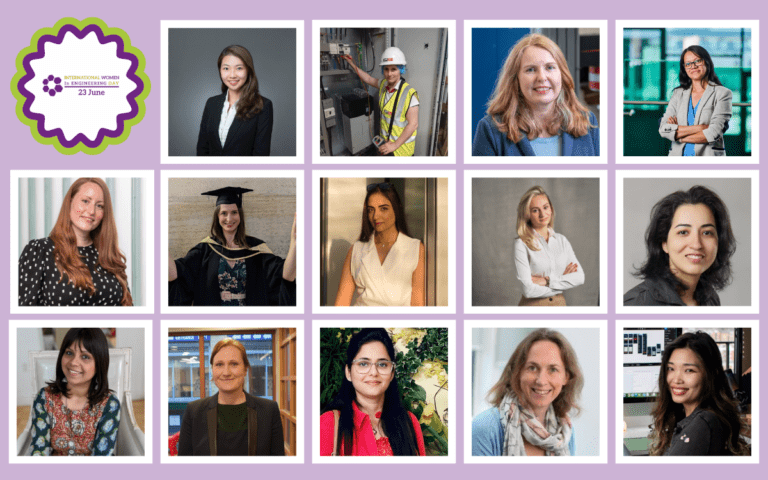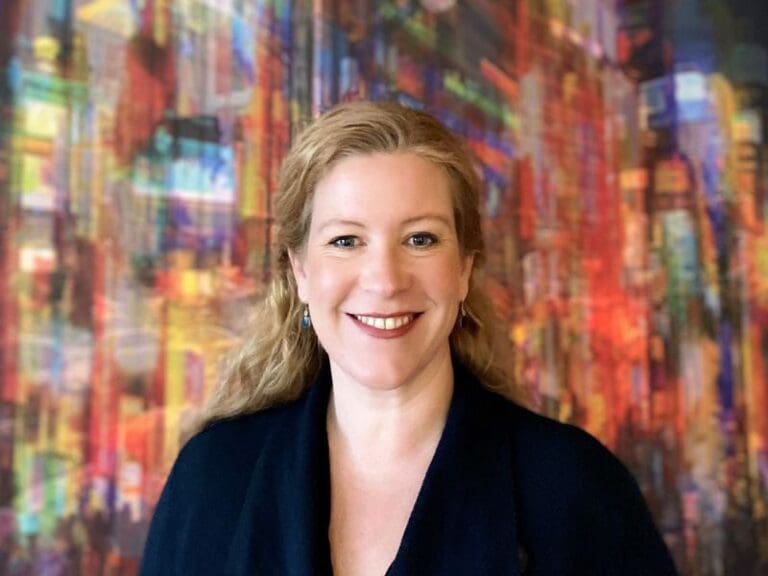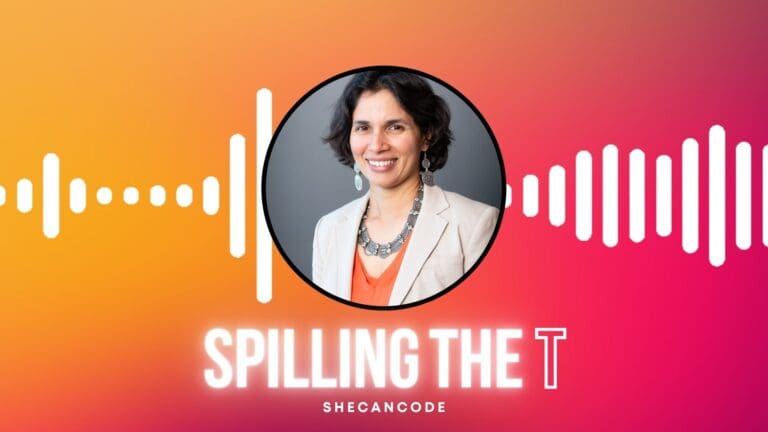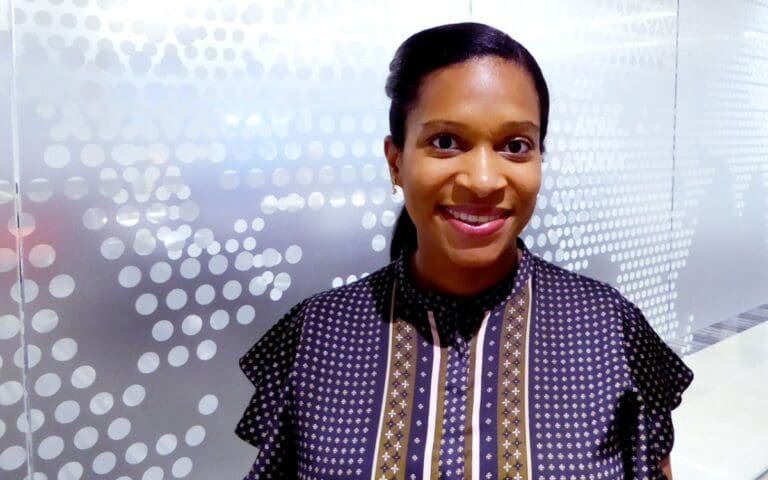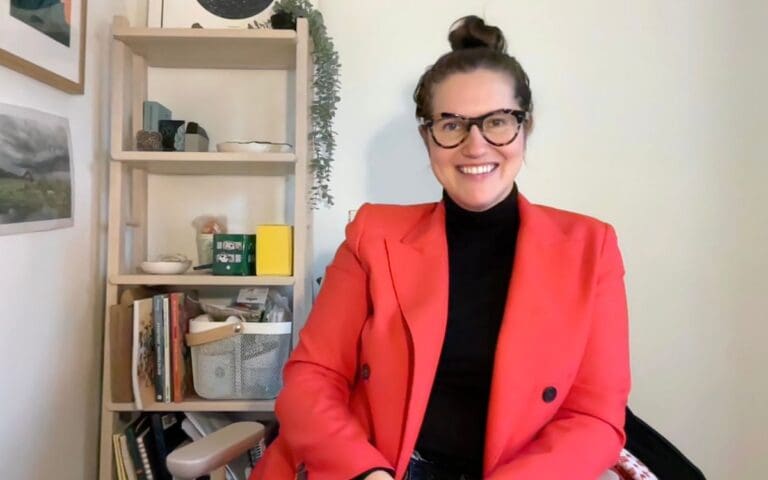This year, International Women in Engineering Day is celebrating the amazing work that women engineers around the world are doing to support lives and livelihoods every day.
In celebration of International Women in Engineering Day, SheCanCode has gathered insights from a diverse group of inspiring women who are making their mark in the engineering world.
These remarkable professionals have generously shared their career advice, personal stories, and the challenges they’ve overcome in their journeys. From innovative solutions to persistent resilience, their experiences offer invaluable lessons and encouragement for aspiring women engineers.
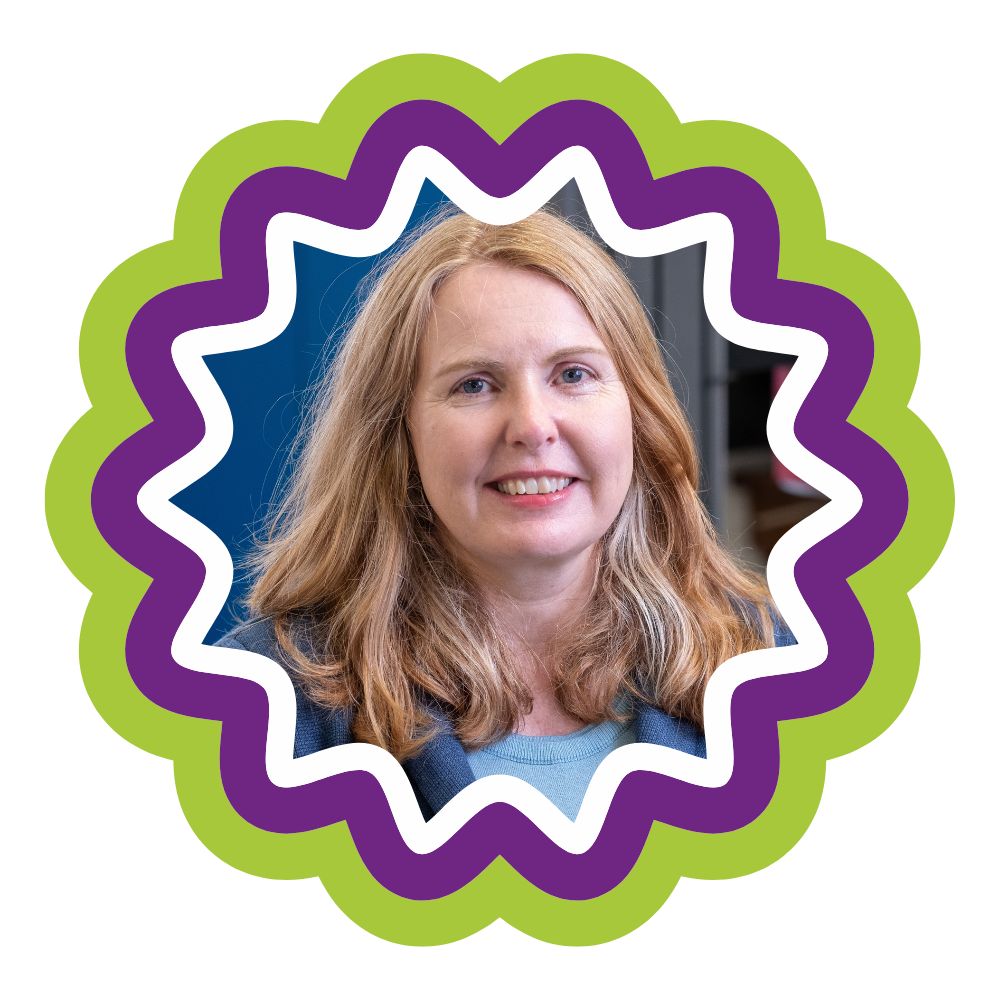
Caroline Field
Caroline Field leads National Resilience at PA. She is an expert in resilience, spearheading an integrated, systems-based approach to understanding threats, vulnerabilities and opportunities – helping clients determine the best strategy for investing in resilience measures to enable their strategic objectives.
Caroline has built her resilience capability on the back of over 28 years of professional experience including 15 years in counter terrorism, blast mitigation and physical security and 7 years in earthquake engineering and dynamics. Caroline holds dual British/American citizenship.
Caroline is active in developing standards in resilience. She was Chair for the recently published British Standard on City Resilience, Co-Chair for the ASCE Infrastructure Resiliency Division SPEED committee, Lead SME for the AEI Resilience program and is currently the Chair of the ISO Urban Resilience Standard Working Group.
Caroline is a Royal Academy of Engineers Visiting Professor of Structural and Infrastructural Resilience at Loughborough University linking research and practice and helping to shape the future of the profession.
Caroline is a Chartered Civil Engineer and Fellow of the Institution of Civil Engineers in the UK, a Principal Member of the Register of Security Engineers and Specialists, a licensed professional engineer in California and a Member of the American Society of Civil Engineers.
What unique challenges have you faced as a woman in the engineering field, and how have you overcome them?
I joined the civil engineering profession back in the ‘90s when there were few female role models, and I was one of a handful of female graduates. I have always felt the need to be technically excellent in my field to receive respect from my male colleagues, because this is what they value. Being a pioneer can be uncomfortable for myself and others. Challenging behaviours and expectations are never easy, particularly as I became more senior.
My early years were easier as I had support and excelled on projects, so was sought out. However, I found it more difficult to progress at senior level as it became more competitive and protectionist. On reflection, whilst experiencing different organisations and countries has really helped me grow, it definitely hampered my ability to progress. My favourite experience was working for small women-led engineering consultancy in San Francisco, which was such a supportive and collaborative environment and really helped me develop my confidence and business and consulting skills.
I have succeeded through my sheer determination, confidence in my technical abilities and the compass to always stay true to myself and my values. I have needed to be able to empower myself and not rely on others to do so. I developed a great deal of resilience along the way which I think is very helpful now as I can help others build their own resilience but also help change organisational cultures to make them a more inclusive environment for everyone, including women. I recently became accredited in resilient leadership which I intend to use to support others.
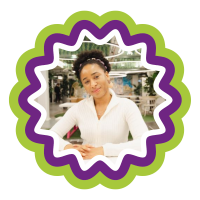
“Hello, I’m Linda. I’m a software engineer in the fintech industry based in London, and I’ve been passionate about technology since graduating with honours in Computer Science in 2018. I love building products with users at the centre. To broaden my understanding, I’ve also studied and worked in fields like UI/UX design and product management. This diverse experience has helped me design and create innovative solutions that truly resonate with users. Giving back is very important to me, and I actively participate in company-wide initiatives aimed at making a positive impact. Outside of work, I enjoy trying out new experiences and hobbies. I’m also a big fan of reading and watching movies.”
Linda Okorie-Kalu, Software Engineer, Wise
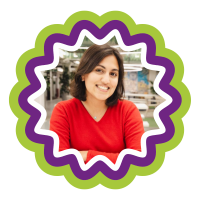
“I am a software engineer based in London, working on bringing Wise to new markets. I came into tech in a slightly unconventional way: studying engineering and then working in operations roles in startups. I made the switch to software a few years after graduating university and haven’t looked back since! I love engineering because you’re always solving new problems and can easily see how your work is being used in the real world. On the weekend you’ll find me at a gym class or checking out a new restaurant in London.”
Aaliya Manji, Graduate Software Engineer, Wise
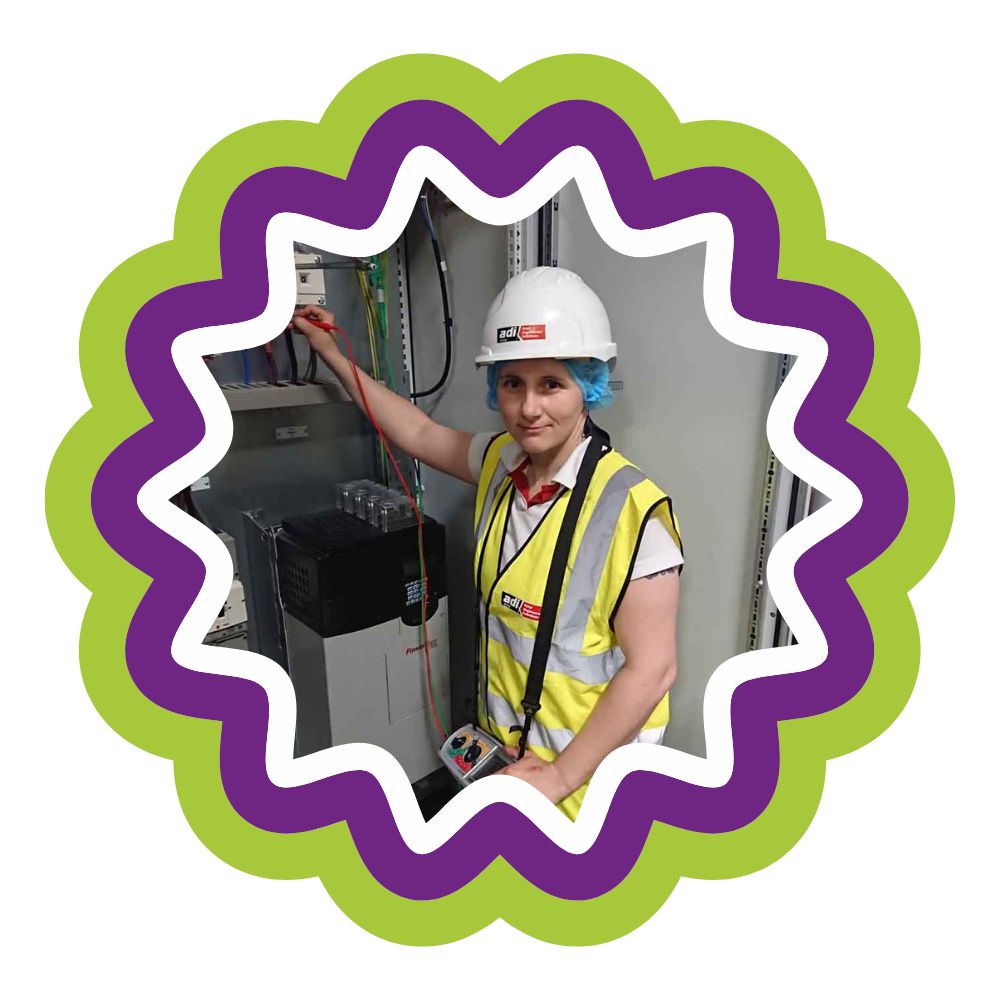
Melissa Britchford
Melissa started her career with an apprenticeship in construction and installation at Southampton General Hospital, later becoming self-employed for several years. Melissa went on to explore electrical testing and joined adi Group in 2015 as an electrical engineer, producing compliance electrical condition reports for major manufacturing industries in the area.
What unique challenges have you faced as a woman in the engineering field and how have you overcome them?
The main thing is, when you’re a woman in engineering, everyone knows you. It doesn’t matter whether you do a good or a bad job, everyone knows your name. When there’s 100 men and just one woman, you’re definitely going to remember the woman’s name. So, if you do something wrong, everyone will know about it. It means you have to be careful with what you do and how you portray yourself because you’re always going to be remembered.
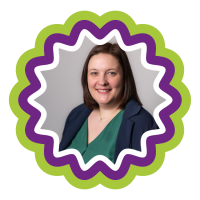
“I was always the child who wanted to pull things apart to see how they work and as I went through school I was excited by the idea that as an engineer you can build and shape anything. I could apply logic and create something new. It was the time when there was no internet and our computers used floppy discs and there were so many exciting possibilities. I took a GNVQ, a bit like a GCSE in IT, starting with the basics. We touched on coding and I loved it, so I searched for university courses in computer science. I was part of the boom at a time when everything ran on mainframes, then some people were predicting that everyone would have the internet at home. Here we are now, most of us consider it to be standard utility. Engineering gave me the chance to be part of creating innovative solutions to problems which is part of my DNA and I am still exhilarated by the challenge.”
Helen Frost-Symmonds, Vice President of Platform, OneAdvanced
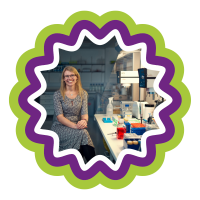
“I have always enjoyed ‘making things’ and throughout my career I have been motivated to make a difference and create impact with my work. I believe this started when my Granny taught me to bake and the importance of mixing different ingredients, in the correct order and with the right mixing speed, to make something that people enjoy. This translated into a love of making new compounds in chemistry when I was at school. I was lucky enough for my parents to buy me a chemistry set and I spent many a happy hour in our greenhouse mixing chemicals to see a reaction. I must admit I did start some fires we needed to put out along the way! This desire to make something useful was what attracted me into chemistry and subsequently Chemical Engineering over 20 years ago, and it still drives me today.”
Professor Aline Miller, Professor of Biomolecular Engineering and Associate Dean for Business Engagement and Innovation at the University of Manchester
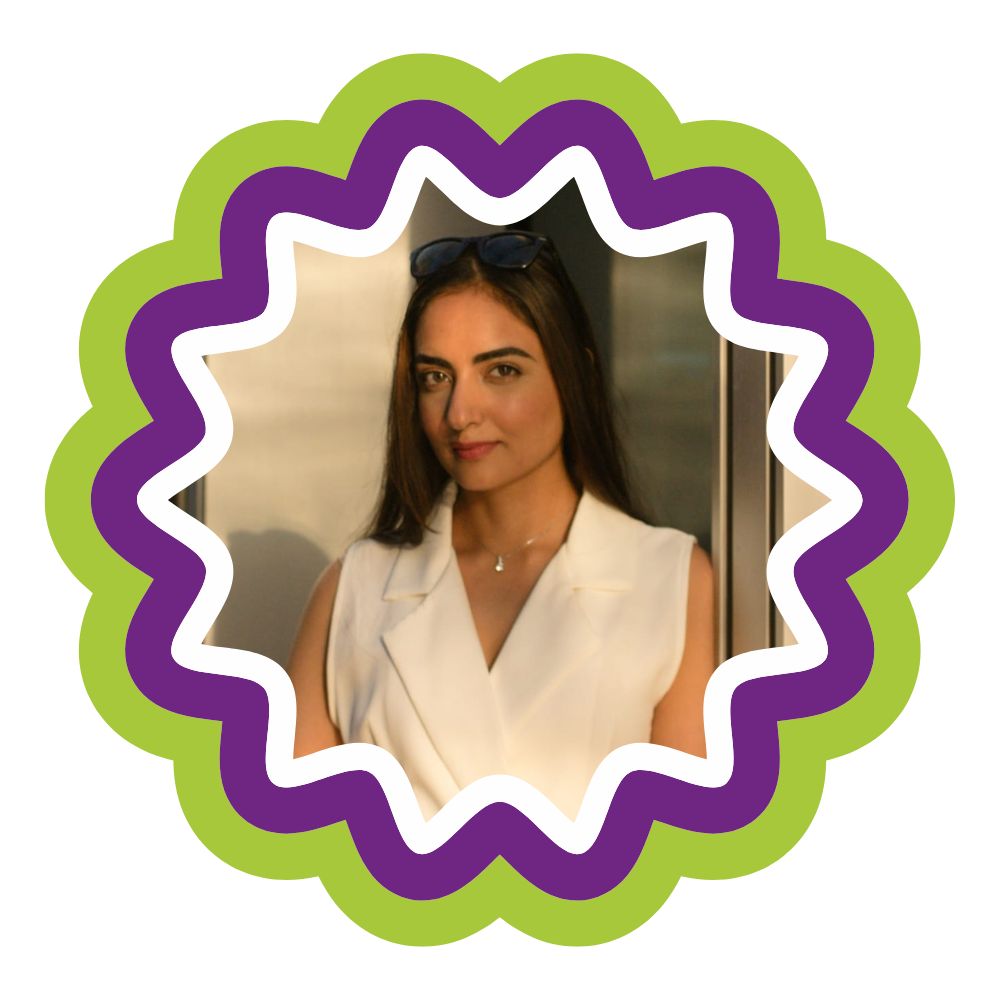
Surbhi Mago
A Software engineer working at a Fintech based in London. Graduated in 2019 in Computer Engineering and it was honour to be awarded as IET’s Undergraduate of the year 2018. An active member of engineering community at work and outside work such as SheCanCode, GirlsWhoCode, Women of Silicon roundabout etc.
I am an extrovert who loves to organize events, enjoys hiking, running, travelling and anything that involves socializing.
Share with us some career advice you’d wish you’d known when starting out in the industry
Realize the power of community. Prepping for interviews with an aspiring group prepares one better for content and criticism. Ask and share. It doesn’t have to be face to face communities but regular subscriptions to discussion groups, reddit communities. I am a daily reader of Dzone, hackerRank, Reddit technology group, TLDR, TechCrunch and many more. Map out at what stage of career you are and make a community around the next stage. Be versatile to grow and accept the changing community as you progress.
Expand your network. Find your mentor and don’t be worried to surpass others who may have more experience.
Be vocal about your achievements. I know people who have learnt and grown more but nobody knows about it. For corporate growth , one needs to be able to present themselves as a brand. People know an impression of rather than you yourself. It’s up to you how you build that but be sure to have that impression backed by examples and experience of your work.

“Reflecting on my early career, the advice I’d share is to have confidence in your abilities and to embrace the journey. As women, we’re often raised with the expectation of perfection in all we do, which can lead to a pervasive sense of imposter syndrome. It’s important to recognise that self-doubt is a common experience, but it shouldn’t hinder your progress.”
Prashasti Agarwal, Software Engineer
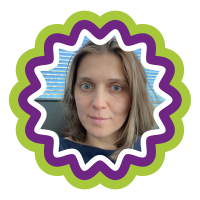
“Growing up, I never perceived engineering as a male-only field. Both my mother and grandmother were engineers, with careers in hardware and software engineering, so my curiosity for technology was sparked from a young age. It was a huge inspiration and seeing my mother’s passion for engineering and the fascinating projects she worked on showed me that this field could be an incredibly fulfilling path, regardless of gender.”
Tatyana Chaykovskaya, Senior Manager of Engineering Development at RingCentral
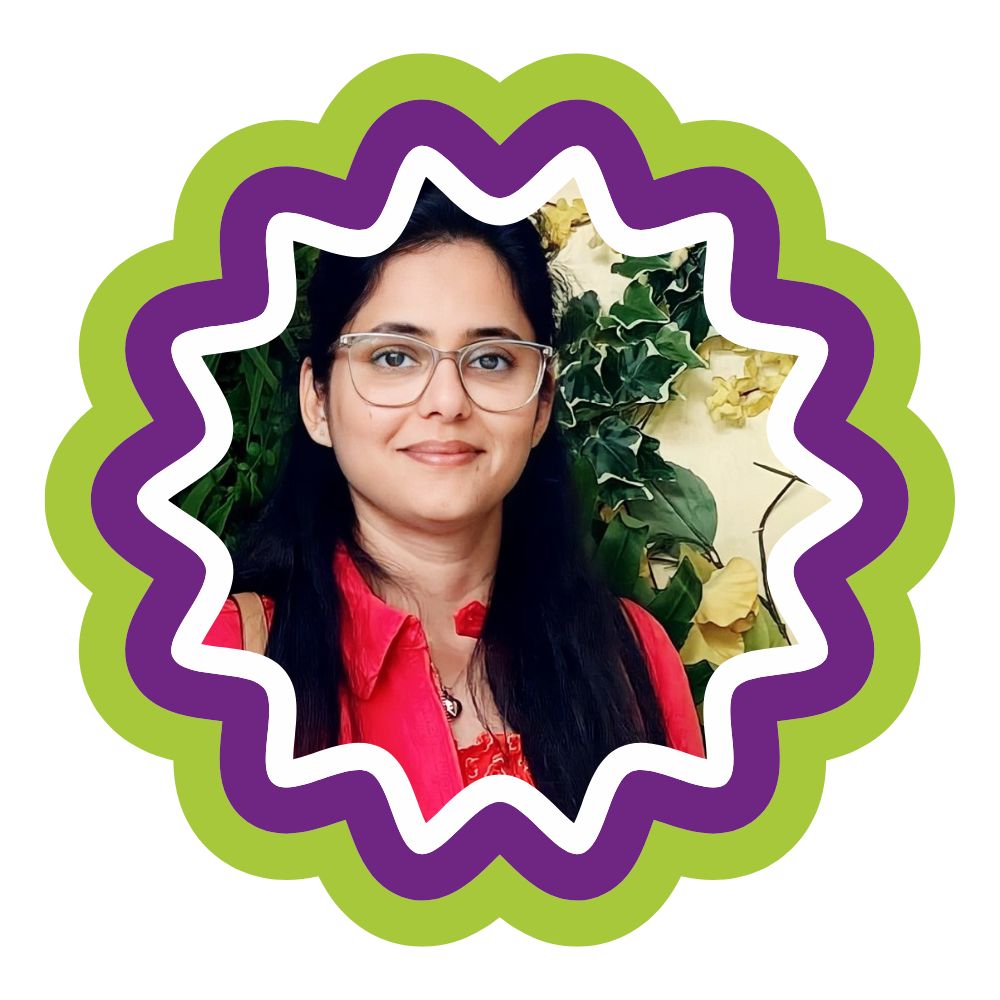
Vandita Singh
I have 18 years of work experience – 3 years in Teaching and 15 Years in Software Testing. I love to read about facts so I have started putting my knowledge on facts over social media. Now I have a small team who put content about real facts on those social sites. I have a daughter who is 9 years old and my husband is also in IT working as a Senior Technical Delivery Manager at Cognizant UK.
Right now I am working with Planit and my client is Specsavers. I am a true Indian food lover. I love adventure, I always find new ways to do things, it could be office work or making the same dish every week for dinner. I always believe in practicality rather than bookish knowledge.
What inspired you to pursue a career in engineering?
My mother retired as a principal and my other sisters are teachers too, I just wanted to break this rally of teachers in my house. As per my nature, I believe in adventure so I switched my career from the science stream to computers. I completed my graduation in Science and Master’s in Computer Science. No one knows about Master in Computers (MCA) in my family because everyone did their Post-graduation in science or Arts. So it was a shock for everyone. I was also rejected from a few colleges because Maths was not my subject in secondary. I got to know about distance learning (IGNOU), they had open gates for the science stream students and they helped me to pursue my career in Engineering. The IGNOU passing % was 16% because MCA was new for IGNOU as well, I took it as a challenge and cleared the MCA. I am the only girl from my batch of MCA who is pursuing her career as an Engineer. I always try to convey to other women that every dream is achievable if you have a belief.

“When companies began to encourage more female leaders, it was still quite challenging to fit in and make a place for yourself in a male-dominated workplace, designed by men. Whether it is family or an organisation, when you decide to support a woman, it’s simply not enough to just assign them a role. It’s crucial to accept their different working styles and adjust the environment so that women can flourish and excel. It’s taken some time, but many men and women leaders have since worked hard to make the workplace more inclusive for women. I have also worked on becoming more assertive – it might have been because of my background and experiences, that I and many other women are, submissive by nature. We are afraid of being assertive or pointing out things that could be improved, and even if we manage to, we tend to sugarcoat our voices to an unnecessary level. It leads to women not being taken seriously on many occasions.”
Rojalin Mishra, Lead Hardware Verification Engineer, Riverlane
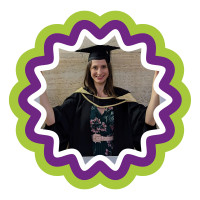
“Try to build yourself a solid network of mentors and peers from early on. Don’t be afraid to reach out and connect with people who inspire you or whose career paths you admire, they can make a world of difference to your growth and opportunities. Additionally, don’t underestimate the power of soft skills. Your technical ability is no doubt important, but being able to translate your findings so that those who aren’t tech-savvy can understand is just as crucial as creating complex, accurate models On a more personal note, trust your instincts and speak up. As a woman especially, you will likely not be part of the majority in most rooms but guess what: you deserve to be there! So quiet down the insecure voice in your head, take the proverbial impostor syndrome by the horns and make your perspective heard. Finally, don’t compare your journey to others. Everyone’s path is unique, and it’s important to focus on your own growth and milestones rather than getting bogged down by where others are. Celebrate your progress, no matter how small, and understand that the definition of success is yours to invent.”
Ana Berdant, Lead Data Scientist, Streetbees
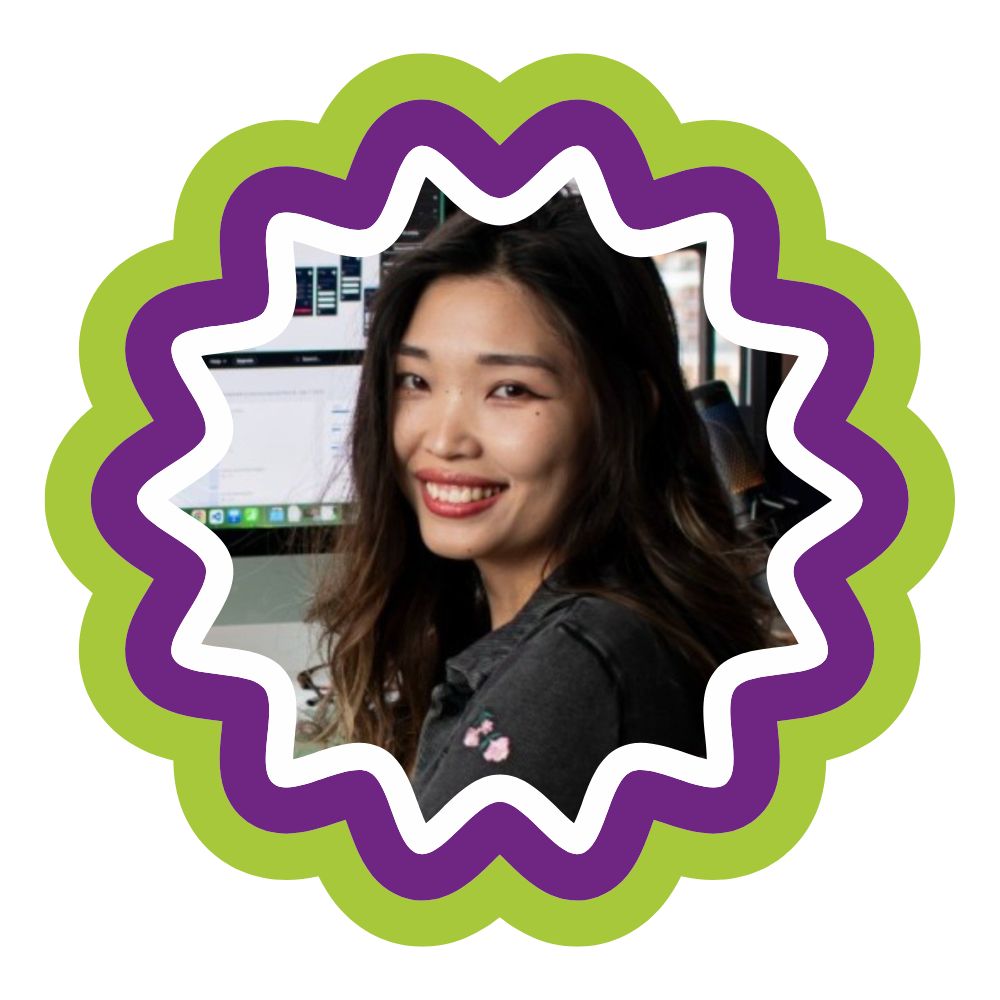
Marina Kim
In August 2020 during COVID-19, I lost my internal audit job and decided to use this as an opportunity to change career and become a full stack developer as I always wanted. While studying web development I have been publishing daily posts on Instagram about my coding journey and building a community of like-minded people.
After 5 months of studying web development and posting educational content, I have been invited to join Data Analytics team at PwC Kazakhstan where I then worked for almost 3 years before finding a web developer job in London and moving to UK on a Skilled Worker Visa. Currently I’m on my way to become a senior developer / tech lead and creating a community for women in my home country.
Share with us some career advice you’d wish you’d known when starting out in the industry
If I had to start the web development journey again, I would focus more on understanding fundamentals of computer science rather than learning practical skills of building applications. I would also invest more time in finding a mentor / community to guide me in the right direction.

“When nobody else in the room looks like you, you can feel intimidated and get a bit of imposter syndrome, and then you might not even be willing to share your perspective. Sometimes when somebody questions something you’re talking about, you might get defensive because you feel like you don’t belong. And that will hinder your ability to see someone else’s perspective. It’s so important to create that belonging because that’s when people bring their best. An important aspect of creating belonging is how many people in a room or company look like you. It’s so important to invest in the sector and create that change. I remember when I was in graduate school, I used to go to high school students and encourage them to pursue science because that’s my passion! We should all be thinking, across the board, “How do we improve?” Not just in thinking about bringing more women into these fields but also how companies can create more opportunities for them to drive change. Change takes time, but it’s very important that we think about it and advocate for it.“
Shadi Rostami, Senior/Executive VP of Engineering, Amplitude
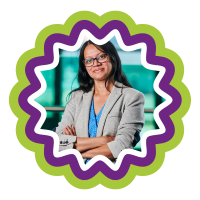
“I can’t emphasise enough how important it is to seek out a mentor, as well as building your network. What I’ve learnt from others in the industry has proved invaluable to me as I’ve progressed in my career and is something I still continue to do. As a woman in engineering, it can be difficult at times, but I’d encourage those starting out in the industry to have confidence and believe in themselves – don’t become a victim of imposter syndrome. Remember why you’re there and all the skills and experience you have to offer. Finally, I’d always encourage anyone starting a career in engineering to prioritise their own development, step outside of their comfort zone and take on new challenges where they can. We work in an environment which is ever evolving, so an openness to learn new things is a must. I’d say that shouldn’t necessarily just be limited to technical knowledge either but can also be applied to your own holistic personal development.”
Dr Nandini Chakravorti, Associate Director – Digital Engineering, The Manufacturing Technology Centre (MTC)
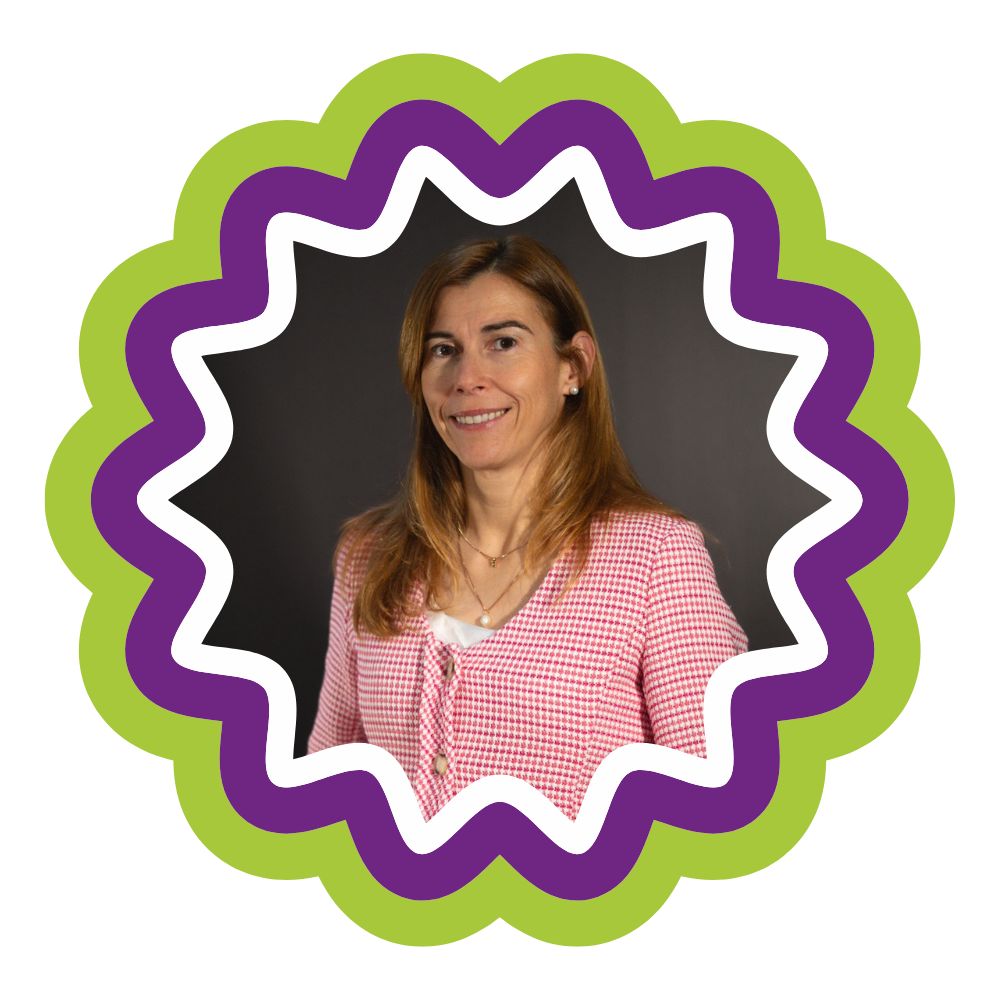
Anabela Cesario
Anabela is a product and tech executive based in Lisbon, Portugal – home of Websummit and an exciting tech scene. She has > 20 years of experience building global products and teams for startups and Fortune 500 companies. Currently, Anabela is the Product Management area leader, reporting to the CEO at OutSystems, overseeing Product Management, Product Ownership, UI/UX and Product Operations. Prior to that, she was the VP of Product Operations (award-winning team) and Chief of Staff to the CPO at OutSystems, with the mission to empower teams in building products customers love. Before joining OutSystems, Anabela held leadership roles at General Electric and Novabase. She studied Management, and Computer Science at Universidade do Minho, in the north of Portugal, and dabbled in the Product Management Executive Programme in INSEAD, in Fontainebleau.
What unique challenges have you faced as a woman in the engineering field, and how have you overcome them?
As a woman in the field of engineering, I have faced two significant challenges: the underrepresentation of women and unconscious biases in STEM. Many women in tech often feel isolated and face skepticism, so it’s crucial to remain authentic and not conform to limiting stereotypes. Instead, we should embrace the unique qualities we bring to the table and use them to our advantage. We can be an inspiration to others by setting an example and demonstrating that we can succeed.
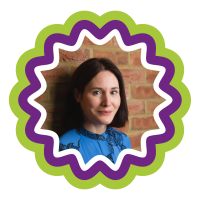
“While I’ve had the privilege of working alongside remarkable female engineering leaders like Anne Brachet and Kathy MacKenzie, if I could choose just one person to meet, it would be Mary Barra, the Chairwoman and CEO of General Motors Company. As the first female CEO of a major global automaker, her leadership during this transformative era in the automotive industry is truly inspiring. I admire her resilience, vision, and trailblazing spirit, and I would cherish the opportunity to learn from her experiences and insights over dinner.”
Kelly Cole, General Manager for Electric Power at Finning UK & Ireland
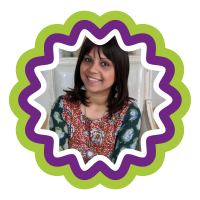
“Firstly, never underestimate your abilities, and don’t be afraid to push yourself! I passed on many opportunities that in hindsight were totally up my alley. Reflect on the chances you missed. Many could have been well within your grasp, but self-doubt prevented you from seizing them.
Secondly, seek counsel from experienced mentors. While also nurturing the next generation of talent, great leaders create an uplifting cycle – elevating themselves and their teams. Use your workplace connections or explore structured mentorship programs like Plato, which provide excellent support to match you with mentors based on your interests and goals.”
Archana Kamath, Senior Director of Engineering, DigitalOcean
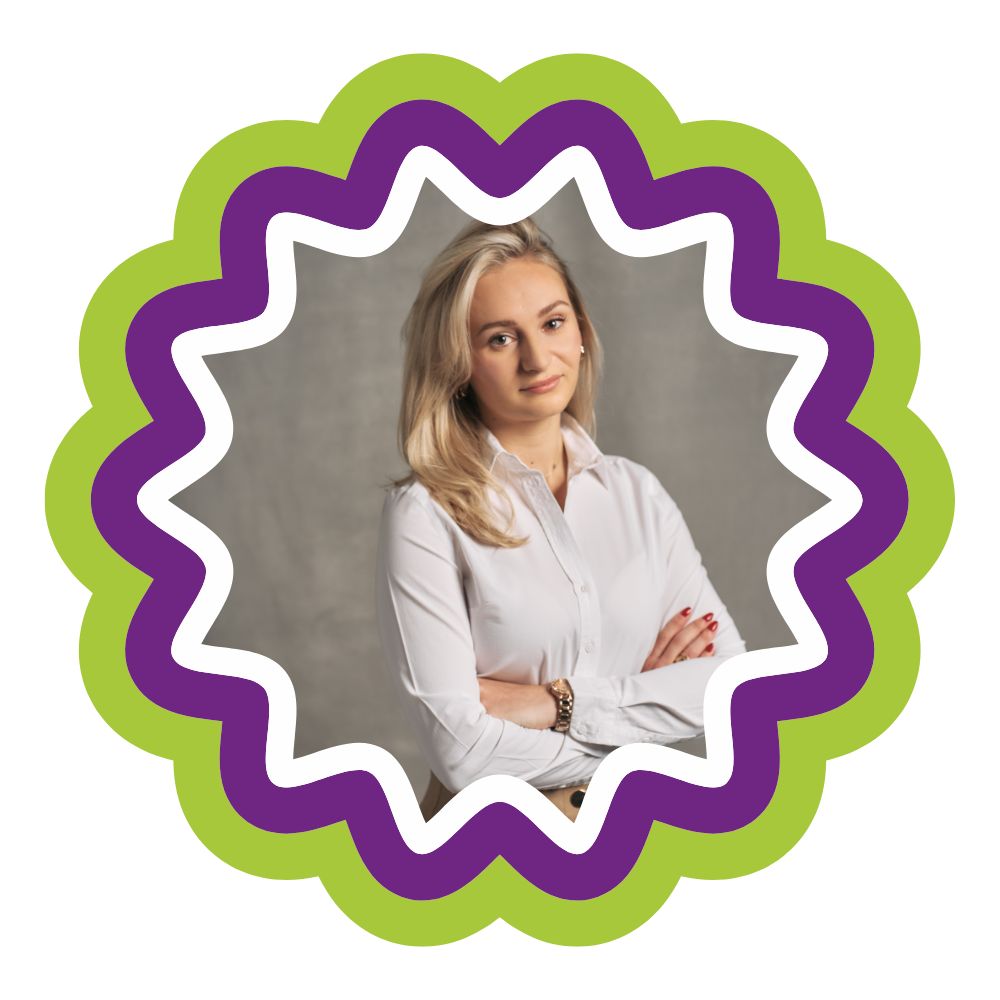
Amanda Cowell
Amanda leverages her expertise in network engineering as a Systems Engineer (Pre Sales) at Juniper Networks. Fueled by a passion for technology, ignited during her studies in Computer Science (Networks), she thrives on designing elegant solutions to overcome complex challenges. One of her proudest achievements involved designing, configuring, testing and supporting a large prison security network project, demonstrating her ability to deliver mission-critical technical projects.
Amanda is also a strong advocate for women in tech, having faced challenges navigating the male-dominated landscape of technology. Through her “Technical Tuesdays” initiative on LinkedIn, she uses her platform to empower and encourage other women to embrace the exciting world of technology.
What inspired your to pursue a career in engineering?
I’ve grown up with new tech constantly being released, coming from a family of tech enthusiasts, also having female influences in the IT world from schoolteachers to lecturers.
Tech is always something that has come naturally to me and I thoroughly enjoy it. Once I started with IT at A-Level, I haven’t looked back. From there completing a degree in Computer Science, finding that the Network Engineering aspect was where I wanted to specialize, and it’s just grown.
During my education, I was lucky to have female IT influences such as my GCSE IT teacher who helped to put me on the path I am on today. On the day I signed up to study Computer Science, I met a female lecturer who I immediately clicked with. We still have a strong relationship – I will never forget that.
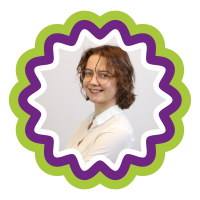
“Always prioritise yourself. Being a woman in engineering is such an exciting place to be — you’re creating the technology of the future.
“There are opportunities to make an impact on the real world— from creating custom 3D prints and designing PCB boards to fully functional projects like electrical rollerblades. You can do things you wouldn’t even imagine, and have a lot of fun with it.
“The same is true in my role at Samsara, as I’m tackling real-world challenges to make a positive impact on the world. This includes building sensors and software designed to make our customer’s operations safer, smarter, and more sustainable.
“Our customers span industries like construction, utilities, public transportation, and governments, and we’re excited to bring modern technologies to these underserved industries.
“In particular, I helped engineer fleet immobilisation to prevent our customers falling victim to vehicle and fuel theft.”
Julia Waclawska, Software Engineer, Samsara

“I was initially inspired to follow a career in engineering after watching motorsport with my family – watching racing cars growing up made me want to go into the industry. From there, I found engineering.
Working in STEM means you never stay still. I like the speed and the cut and thrust of industry plus I also like the detail and the passion you get from the academic environment. I’m never doing the same job twice, and it’s an aspect that really enticed me into the sector. We’re always looking for new technologies so we’re always looking for new skills and new opportunities.
I moved into higher education because the idea that I can help nurture the minds of those who will be doing jobs that haven’t even been invented yet is truly exciting and rewarding. I remember suggesting that children in school now could potentially be the first Martians – the first people who actually visit Mars – and when you start thinking about that, it’s easy to get very excited about my role in engineering. The idea that the next generation will have opportunities that weren’t available when I was young is thrilling and helping these students reach that potential is certainly motivating.”
Professor Georgina Harris, Head of the Faculty of STEM, Arden University
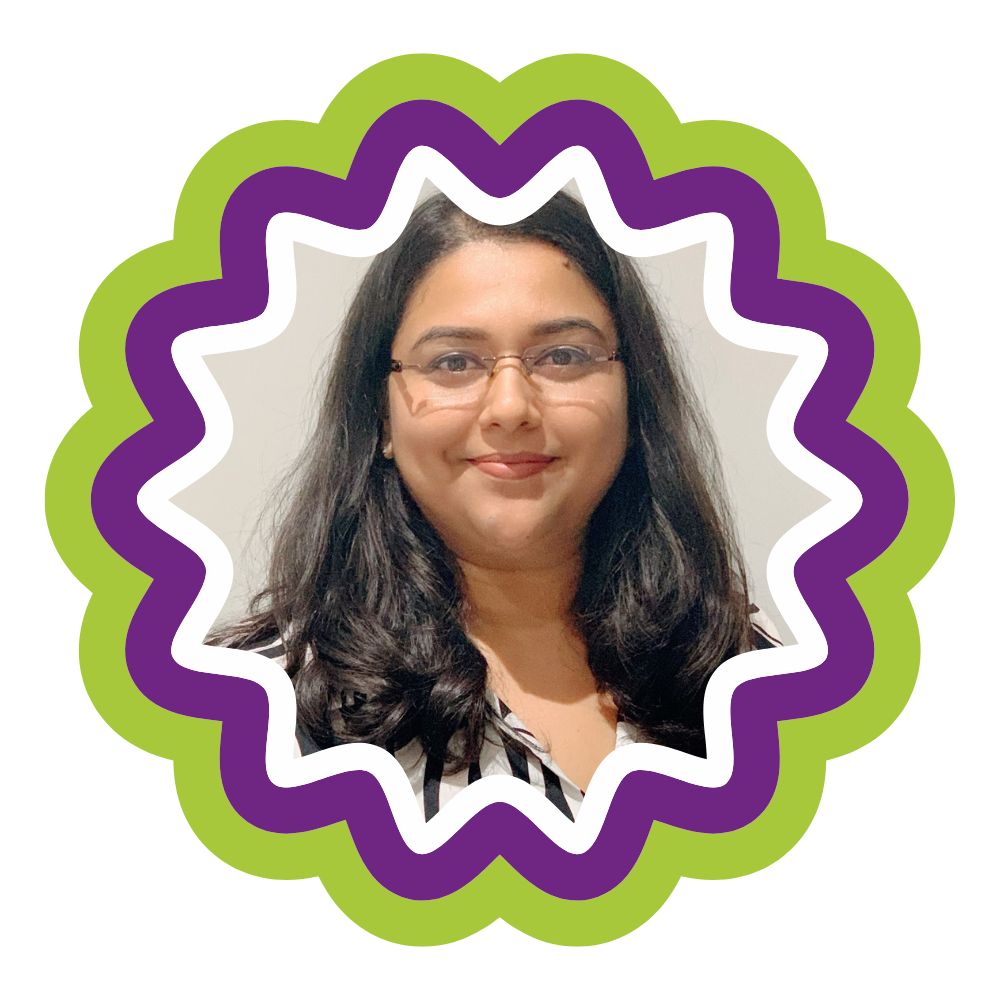
Manjuladevi Balasubramanian
Manjuladevi Balasubramanian is a software engineer at EV smart charging design and development firm, Versinetic. Her journey as a software engineer started in India, with a bachelor’s degree in Electronics engineering, followed by a masters degree in Software Systems from the Birla Institute of Science and Technology. She relocated to the UK via a career break in Paris and was recently named Electronics Weekly’s “Returner of the Year” at its Women in Electronics Awards.
If you could have dinner with any woman in engineering, past or present, who would it be and why?
Padmasree Warrior, former Chief Technology Officer for Cisco and Motorola, CEO of NIO, and who still serves on the board of directors at Microsoft and Spotify, would be my ideal dinner companion. She is a role model because, like me, she was brought up in India and gained her own engineering qualification there, from the Indian Institute of Technology Delhi, before relocating to America to establish and enjoy a successful career.
If I could have dinner with Padmasree, I would love to know what challenges she faced over her career and if there were any obvious stereotypes she had to break as a woman engineer and an Indian woman in America.
Women have traditionally had to work harder to compete at a level where male counterparts see them as capable. At the same time, women are often considered homemakers and can be pressured into balancing, and even being forced to sacrifice, work for family life.
I wonder what Padmasree’s thoughts on choosing between family and career would be and if she ever had to do that. During our dinner conversation, it would also be interesting to find out the top three qualities that she thinks women need or must have to achieve a successful and balanced professional career.
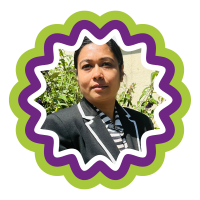
“Inequality and gender bias were two major challenges I have faced as a woman in engineering. I overcame them by not paying attention to them and instead I focused on my continuous professional development. As a result I was able to take on more responsibilities while at the same time, demonstrating my technical expertise that helped me to achieve many successes.”
Renu Amin, Mechanical Design Engineer, Cyclife Aquila Nuclear
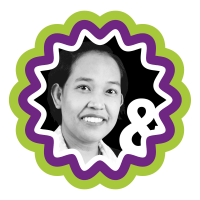
“I would advise my younger self to read a lot. I have always been a reader, but I wish I had read more. Also, to write more. Don’t be overcritical over my own work but just write whatever is on my mind. Acquire an excellent speaking and writing skills because half of what makes a good engineer is the technical knowledge and the other half is the ability to effectively communicate them.”
Marxileni Lapuz, Senior Sustainability Consultant, Black&White (B&W) Engineering
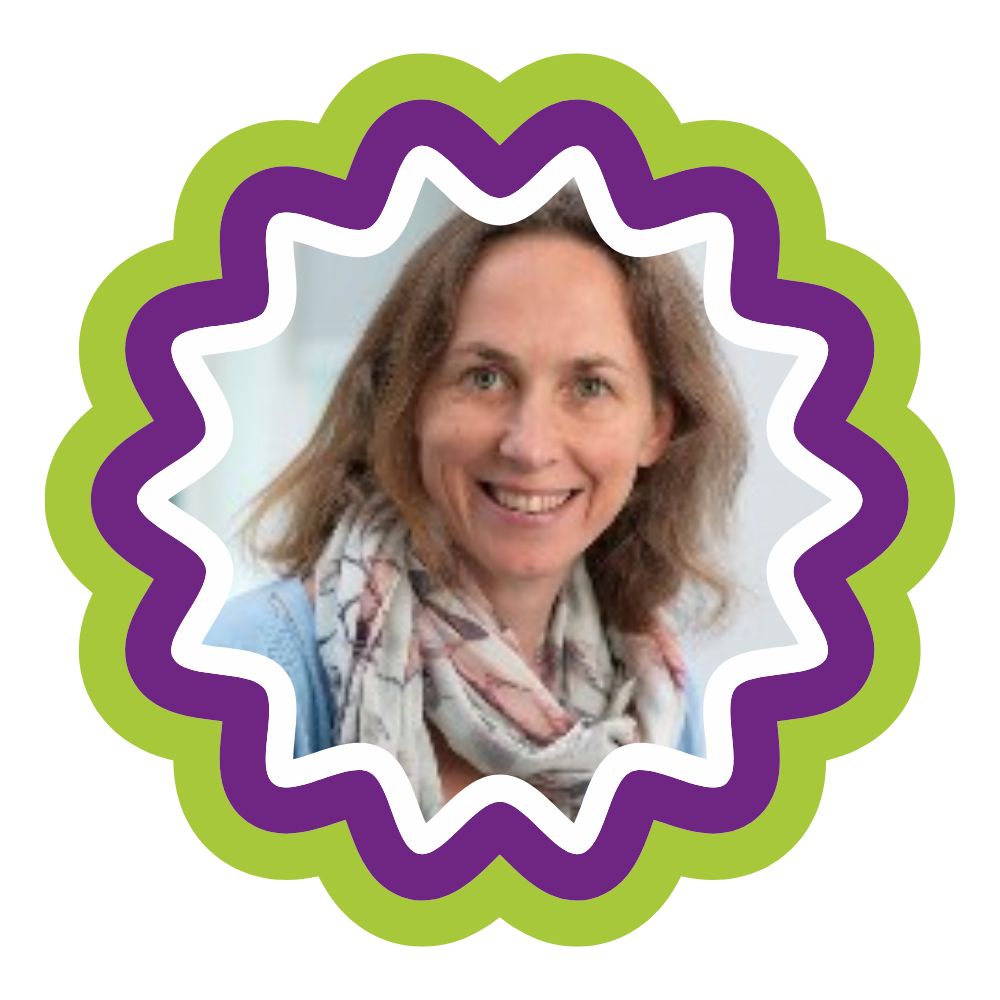
Martha Taylor
Martha has been a Civil Engineer for 25 years. Following an initial 3 years in the water sector in the UK, Martha spent 10 years working largely on international development projects in countries including Afghanistan, Guyana, Ethiopia, and Laos, developing a love of reservoir and river engineering during that time. Since then, Martha has worked for the past 11 years back in the UK on large flood risk and reservoir projects. Martha is motivated by the social and environmental outcomes that can be realised through good engineering and design. She is now the Engineering Lead for two major reservoir projects at Anglian Water, designed to secure a reliable supply of water for the future and create new opportunities for the region to thrive
What unique challenges have you faced as a woman in the engineering field, and how have you overcome them?
I studied a bit of sociolinguistics at A-level, and I remember being struck by the fact that women have a strong tendency to temper the language they use to express opinions or answer questions, using phrases like ‘I think..’ or ‘perhaps’ to make their opinions appear less definite. This can lead to people (particularly people who are used to working in predominantly male environments) underestimating the value or certainty of the opinion they are expressing. I have no desire to change how I communicate to appear more certain than I am, so I still have to work hard not to be underestimated when working with new people.

“My dad is my biggest inspiration, and he is who introduced me to this industry and made me feel so welcome considering I was in the minority of women who do it. He showed me how incredible it is to be able to learn and do the trade. Choosing to do this was the best decision I ever made, and I don’t think I would ever be here without him.”
Taya Brooks, HomeServe engineer
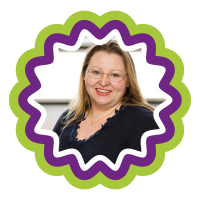
“Although not exclusive to careers in quality engineering, there continues to be a glass ceiling, with the more senior roles being dominated by men. To progress further, I chose to take a sideways move out of quality engineering to gain further experience in other leadership roles. This enabled me to have increased confidence and skills that allowed me to return to the industry in more senior roles.”
Angela Christian-Pye, Senior Quality Engineering Manager, Roq
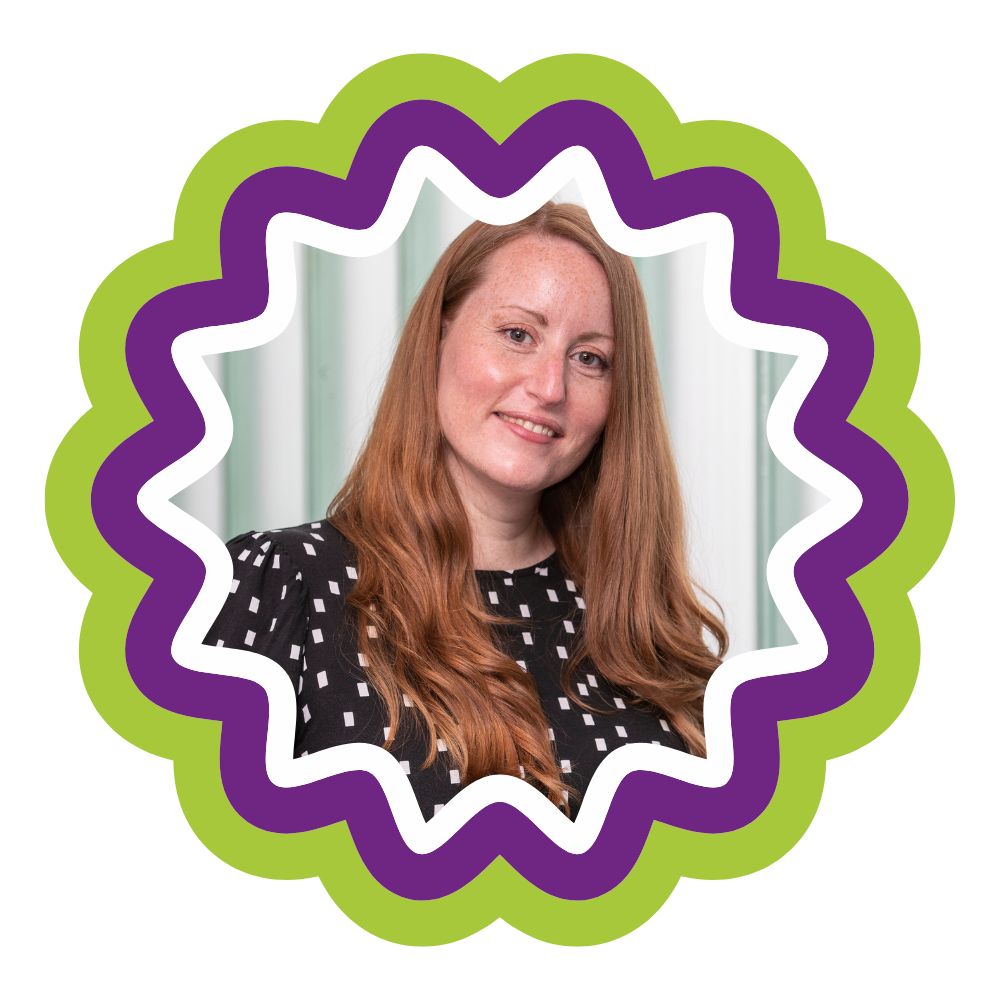
Jen Fenner
Jen is the co-founder and managing director of DefProc Engineering, a team of multi-disciplinary engineers based in Liverpool Science Park, specialising in research and development, designing for the manufacturing process and small-run production for testing.
Jen is a member of the Liverpool City Region Combined Authority Advanced Manufacturing Board, guiding policy for the sector, and recently won the Technology Leader award in TheBusinessDesk North West Leadership Awards 2024.
DefProc Engineering was also picked as one of five companies on Digital Catapult’s Hydrogen Accelerator programme to propel hydrogen technology in the UK’s industrial landscape.
If you could have dinner with any woman in engineering, past or present, who would it be and why?
Hedy Lamar is one of the most iconic women inventors of the 20th Century; although she is most known as a beautiful actress, she also invented an early form of Wi-Fi by creating a frequency hopping system, but she wasn’t taken seriously because of her acting career.
She also worked with Howard Hughes, helping him with his aeroplane designs, and from there, the list goes on of things that she contributed to.
Hedy Lamar was incredibly bright, and I wish more people knew how brilliant she was away from the cinema screen.
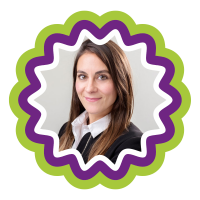
“Some of the most unique challenges for me happened at the start of my career. That was a time when I felt like I always had to prove to myself, and others, that I was capable of doing the job just as well as my male colleagues. Entering motherhood, while also having a career was another time I had to navigate similar challenges. I think it can often be easy for us to question if we’re balancing being a mother while having a successful career in engineering when in reality we’re doing our best in both.”
Miriam Lorenzo, Chief Engineer at Drive System Design (DSD)
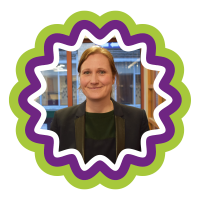
“Go for it! It’s a fulfilling job where no two days are the same, and the opportunity is there to make a real difference in the world. We’ve come a long way in terms of gender equality, thanks to our predecessors going against the grain and calling out inequality. I believe it is my responsibility to support other women in the industry, and to be vocal if I see inequality, and I would encourage the next generation to continue to do so.”
Kate Watson, Executive Associate, Sutcliffe
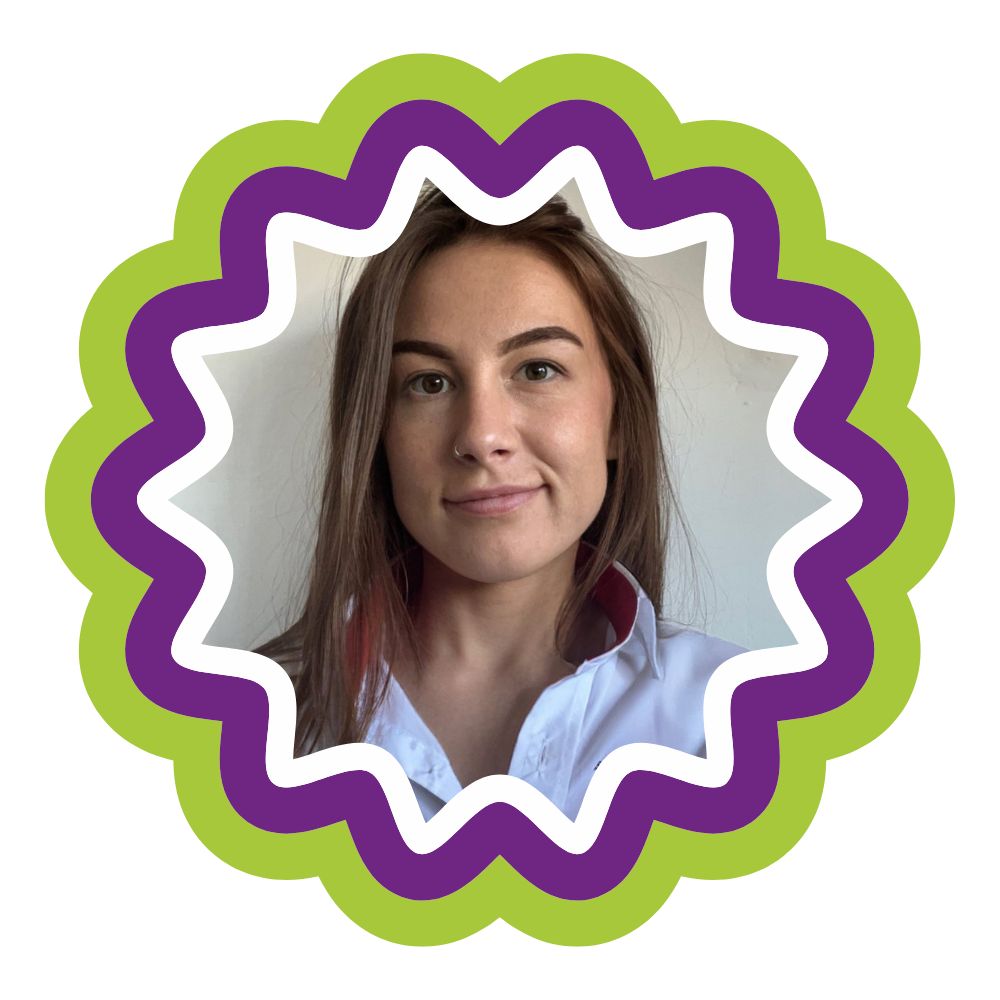
Caitlin Briggs
Caitlin joined adi Group’s Projects division in 2023, quickly transitioning from a Graduate Process Engineer to a Process Engineer. Caitlin holds a bachelor’s degree in chemical engineering and a master’s degree in sustainable chemical engineering.
Share with us some career advice you’d wish you’d known when starting out in the industry
Don’t be afraid to ask questions or voice your opinions. It can be a little bit intimidating sometimes, especially when you’re sitting in a big room filled with people.
There’s no such thing as a stupid question, and speaking up is vital for your learning and development. It’s also important to accept that mistakes do happen and not to beat yourself up too much about it. I think it’s quite easy to get in your own head when things go wrong, but you just have to take them as learning experiences and try not to make the same mistake twice.

“If I could have dinner with any woman in engineering, it would be Alice H. Parker. She invented a natural gas-powered heating system in 1919, which was a big step forward for home heating. Despite facing many challenges as an African American woman, her work has had a lasting impact. Having dinner with her would be a unique opportunity to learn about her thought process, the challenges she faced, and the impact of her work on the HVAC industry. I would love to hear more about her experiences as an inventor, her creative process, and how she navigated the significant obstacles of her era.”
Vicky Choi, Graduate Mechanical Design Engineer, Avrenim

“I have always loved to learn about how things work and been passionate about maths and physics when I was at school. But more importantly, I have a desire to make a difference, to make things better, more efficient, and I realised that engineering is a field that allows me to do so. Working with similar minded people, with similar passion really stimulates me.“
Kaki Liu, Associate Director, Black & White (B&W) Engineering
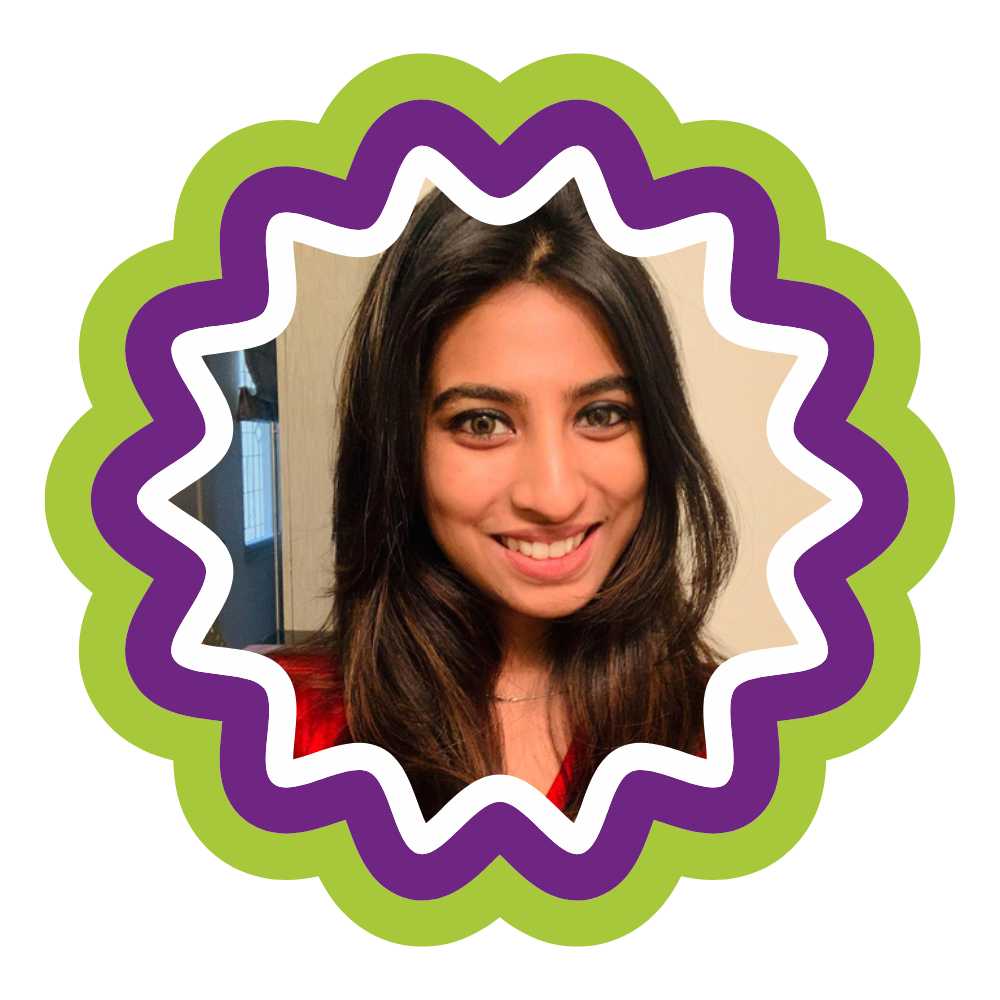
Nandini Menon
Nandini, Manager in Decision Science at Cockroach Labs, is a Data Scientist with over 7 years of experience in the analytics problem solving space across digital marketing, retail, telecommunication, supply chain and inventory planning optimisation domains.
Nandini is passionate about data science and produces videos to support those who are starting out in the field to learn more. You can discover her YouTube channel here.
What unique challenges have you faced as a woman in the engineering field, and how have you overcome them?
The most common challenge I have faced is the occasional underestimation of my technical abilities. To overcome this, I’ve consistently focused on delivering high-quality work and continuously expanding my skill set. Additionally, I sought out mentors and allies who provided support and guidance, helping me navigate the complexities of the industry. Also, By building a strong professional network, personal brand and advocating for myself, I’ve been able to demonstrate my capabilities and earn the respect of my peers.
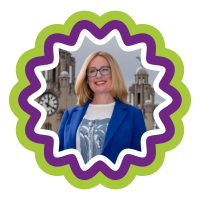
“My inspiration for pursuing a career in the retrofit industry was that I wanted to make a tangible difference in the world, especially looking at ways humans interact with the environment – I was also inspired by the men in my family, Grandfather, father, brother and husband who all have careers in the construction industry.”
Rebecca Armstrong, Managing Director, Making Energy Greener
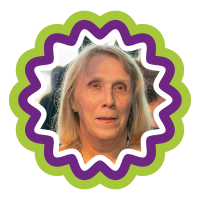
“Katherine Johnson, she wasn’t an engineer but a mathematician who helped NASA send astronauts to the moon safely. I learnt about her watching the movie Hidden Figures and she showed real strength of character and determination working in an industry where she had to overcome both racial and gender bias. It would be fascinating to find out where she got the strength to overcome the barriers she faced.”
Susan Gordon, Business Development Manager, Renewables, Fugro


